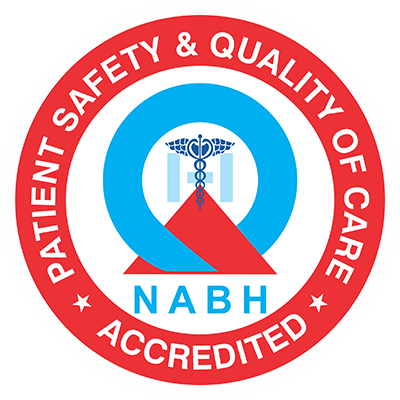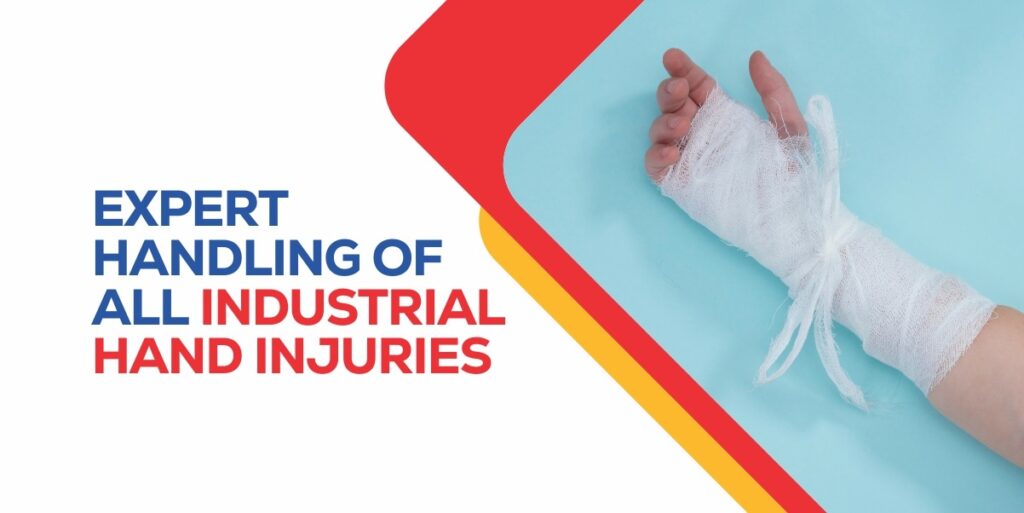The industrial sector, a behemoth employing people across strata, undoubtedly helps actualise millions of dreams. But it is also a minefield of occupational hazards, the most commonplace being hand injuries.
National statistics paint a grim picture of the scenario: 4000 industrial injuries are reported annually from the 363,000 factories functioning across the country, with a significant portion resulting in permanent disability. These injuries are not mere numbers; they represent stories of dreams deferred, families burdened, and aspirations halted. They serve as a stark reminder of the vital need for effective safety protocols and immediate, specialized medical care.
Hand injuries are amongst the most commonplace of all industrial injuries. The poignant story of Aman Shukla, a young worker from Uttar Pradesh, whose hands were crushed under a power press brings this reality to the fore. The life-altering injury derailed all his plans for the golden future of his family, and left them in doldrums.
The impact of industrial hand injuries, as experienced by workers like Aman, is a tapestry of physical, psychological, and economic challenges.
Physical disability: The spectrum of injuries ranges from minor lacerations to severe cases like Aman’s, leading to permanent disability and a drastic change in the ability to perform everyday tasks.
Psychological trauma: The mental anguish accompanying such injuries is profound. The sudden shift from being an able-bodied worker to facing a life with a disability can lead to depression, anxiety, and a sense of helplessness.
Economic hardship: For many, like Aman, the injury means not just a temporary setback but a long-term financial crisis. The loss of income, coupled with medical expenses, plunges families into economic uncertainty.
Social implications: The ability to engage in social activities, fulfill family roles, and maintain relationships is often hindered, leading to isolation and a diminished quality of life.
Industrial Hand Surgery & Rehabilitation
Industrial hand surgery is not only a medical intervention but a crucial measure to restore normalcy and independence. This specialized field of surgery goes beyond the operating room; it’s a journey of rehabilitation, emotional support, and reintegration into the workforce.
Industrial hand surgery encompasses a variety of procedures and treatments aimed at addressing injuries or conditions affecting the hands, which are typically sustained in industrial or occupational settings. These surgeries and treatments can vary widely based on the type and severity of the injury. Here are some common types and aspects of industrial hand surgery:
- Fracture repair: Injuries to the hand may involve fractures of the bones. Surgical repair may involve the use of pins, screws, or plates to stabilize the bones.
- Tendon repair: Tendons, which are the connective tissues linking muscle to bone, can be damaged in industrial accidents. Surgery often involves reattaching the severed tendon or reconstructing it.
- Nerve repair: Industrial accidents can cause nerve damage in hands, leading to loss of sensation or function. Microsurgery is often required to repair these delicate structures.
- Repetitive strain injuries: These are common in industrial settings due to repetitive motions. Treatments might include the surgical release of compressed nerves or tendons, as in carpal tunnel syndrome or trigger finger.
- Burns & Skin grafts: Severe burns to the hands may require skin grafts and reconstructive surgery to restore function and appearance.
- Amputations and reattachment: In severe cases, industrial accidents can result in the amputation of fingers or the hand. Reattachment surgery (replantation) may be possible in some cases. If reattachment is not feasible, prosthetics and rehabilitation are essential.
- Joint reconstruction: This involves repairing or replacing damaged joints in the hand, often due to repetitive stress or trauma.
- Arthroscopic surgery: This is a minimally invasive surgery used for diagnosing and treating joint problems in the hand.
- Dupuytren’s Contracture surgery: This condition, often affecting industrial workers, leads to bending of the fingers due to thickening of the underlying tissue. Surgery may involve removing or releasing this tissue
Regular medical check-ups and early treatment of minor injuries can help prevent the need for more extensive surgery.
In the realm of industrial hand surgery, the goal extends beyond surgical repair to encompass comprehensive rehabilitation and a return to normalcy. These measures include:
- Physical therapy: To regain movement, strength, and functionality
- Occupational therapy: Focused on improving the ability to perform daily activities
- Pain management: Including medications, nerve blocks, and alternative therapies
BBR Hospitals, located at the epicentre of Hyderabad’s bustling industrial district has decades of experience in treating industrial injuries. Their comprehensive approach underlines their commitment to treating industrial injuries with expertise and empathy. Their teams of orthopedicians, surgeons, physiotherapists combine expertise with empathy to deliver seamless personalised care. BBR Hospitals’ state-of-the-art infrastructure, operation theatres and up-to-the-minute technologies ensure that careseekers get the best of care possible at an affordable cost. The hospital’s dedication to restoring functionality and quality of life mirrors their understanding of the profound impact industrial injuries have on workers and their families.



